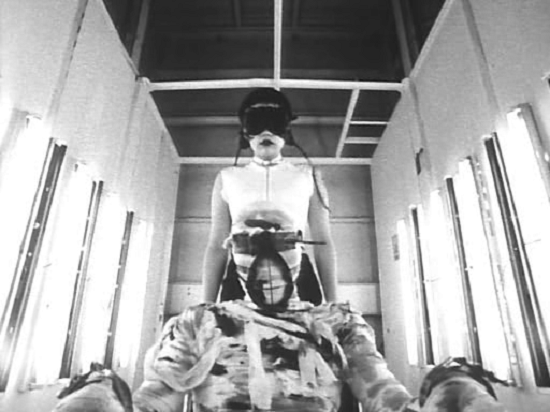I don’t think I’d ever been considered important enough to count as ‘Industry’ before. And yet, there it was, written on a little plastic ID chain I wore around my neck for the three nights I attended the T-Mobile Nowe Horyzonty (New Horizons) film festival in Wroclaw, Poland: “Industry”. King Cheese; Prince of the film viewing Nazgul; contributor to the welfare of the cinema watching world. Obviously, this was a position I had to take seriously. They just don’t go handing these bangles to any Wojciech or Weronika. I reckoned I would be fine as long as I didn’t shatter the illusion of quiet supremacy by shouting “Industry!” whenever I walked into any of the screenings and, y’know, took some notes or something. That bit was pretty easy. Herding my thoughts into organised sentences was harder, however, mainly due to the sheer vastness of the festivals programme. New films, cult films, films in competition and previously out of favour, boring films, long films and short films, gory films, fast films and some films so slow moving that I thought eternity had swallowed the cinema whole and the audience were caught in some Sartre-esque purgatory. The Kino Nowe Horyzonty, where the majority of the screenings took place, has nine separate screens, all full to bursting with an utterly befuddling mix of cinematic delights. In the end I just endeavoured to see as much as possible, drink as much as possible, and write down as much as I could remember. So here are some of the things I learned at Wroclaw’s 2013 Nowe Horyzonty film festival.
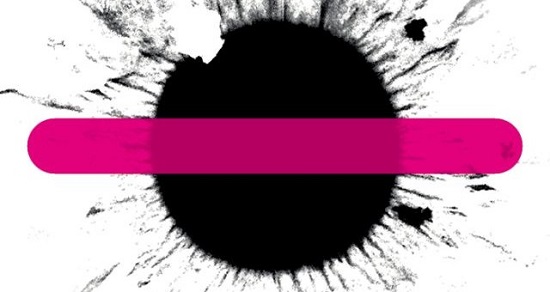
Wroclaw is just lovely and I hope it stays that way
Wroclaw is an absolutely beautiful city. After the Red Army had comprehensively shelled the crud out of it during the Second World War, the decision was made to rebuild the buildings according to the original plans. The result is a collection of what appear to be remarkably well preserved 19th century town houses, all painted in beautiful colours, which in the heat of the Summer practically glow with healthy vigour. The people are friendly (and everyone speaks English, which to this dimwit was obviously a life-saver) and the beer is cheap, plentiful and excellent. At one point I found myself sat in the central square in the baking sunshine, enjoying the traditional musical talents of a band I am choosing to call Piotr And His Amazing Men, when a tiny chaffinch (I think it was a chaffinch anyway. Birds are not my strong suit but there were hundreds if them flocking around the town centre) came along and, I shit you not, proceeded to hop up onto my table and start doing a little chaffinch dance. That’s the kind of place Wroclaw is. Unfortunately I was brutally awoken from my Polish reverie by the arrival of an English stag do at the bar opposite – groom in a tutu with his hands taped to a dildo and everything – who proceeded to carry on in the time honoured manner of yelling, breaking things that didn’t belong to them and saying rude things about people that (they presumed) couldn’t understand English. I asked my waitress whether these depressingly familiar shenanigans were a regular occurrence and with a look that suggested she’d just eaten a piece of botulism infected hamburger she replied “More and more”. I could go on a rant here about the behaviour of Brits abroad, that it’s a disgrace to the nation, the curse of the cheap air fare etc etc. I will instead restrain myself and just say that I sincerely hope that said stag do ran into Piotr And His Amazing (and very very hard looking) Men and had the living crap beaten out of them.
Camille Claudel, 1915 is perhaps not the first film of choice for the Bruno Dumont novice
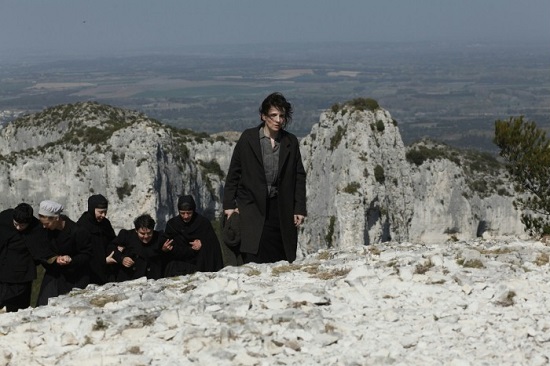
“Ah, okay, that’s my least favourite of his films”, was what Igor Drljaca, director of Krivina, showing in this year’s competition, told me when I explained that I had been to see French director Bruno Dumont’s latest film earlier that day. “I just couldn’t work out what it was for.” And he had a point. Camille Claudel, 1915 is the slow moving story of the titular character (played by Juliette Binoche), a sculptress and former lover of Rodin, and her time spent in an insane asylum. And…that’s about it. Set over a period of a few days, we see Camille’s interactions with the staff of the asylum, witness the effects of her acute persecution complex and her excitement as she eagerly awaits a visit from her brother, the poet Paul Claudel (played with mesmerizing, quiet megalomania by Jean-Luc Vincent). I’m a Dumont novice and was compelled to see the film by Anthony Nield’s excellent retrospective on the director on The Quietus earlier this year, and so I had very little context for what I saw. The effect was oddly polarising. Dumont seems so content for nothing to happen – indeed at points seems to be almost testing the audience’s patience – that the tiniest events become cataclysmic. A large part of this is down to Binoche’s incredible performance. Much of the film is spent in simple contemplation of her tortured face and she sells the character’s psychoses completely, yet none the less there were several points where I found myself right on the edge of leaving the cinema. However, each time I thought I couldn’t take any more I would be struck by some little detail – the iciness of the light surrounding the asylum, the perfection of the director’s framing – that would keep me in my seat. I confess that I too couldn’t work out what the film was actually for. Any message it contained seemed hopelessly opaque and trivialised by its truncated time-frame, but as a work of formalist beauty I saw very little else to compare to it all week, and I’m definitely intrigued enough to want to see more.
The Cyber House Rules

In direct, almost mocking, contrast to Dumont’s glacial pace, the festival was also showing a season of Cyberpunk movies in late night screenings. This got the trash lover in me very excited, especially when I saw that a couple of the slots were occupied by the efforts of director Shozin Fukui. Two films that I’d read about in Jack Hunter’s indispensable guide to extreme Japanese cinema, Eros In Hell, that I’d long ago given up any hope of seeing: 964 Pinocchio (1991) and Rubber’s Lover (1996). The sheer energy of both films has a lot to teach any young film maker, but 964 Pinocchio in particular was a real treat. This story of a man turned into a cybernetic sex doll, before being tortured, imprisoned and demeaned and his eventual furious revenge split the packed audience completely down the middle. I have never seen as many people walk out of a screening as I did during this one (mainly during one particular moment: a protracted vomiting scene which gives Team America a run for its money). The film’s sheer balls-to-the-wall mania won over the rest of the audience with aplomb and the screening ended to loud applause and cheering. Rubber’s Lover is a harder sell: it’s that crucial bit more amateurish for a start and the pacing makes it a little hard to fathom, but none the less certain scenes hold an immense power. When the main character – tortured, imprisoned, demeaned. Do you sense a pattern forming here? – rises from a drugged stupor to seek his revenge, kitted out in a full rubber all-body costume bristling with wires and analogue boxes and proceeds to psychically pound his aggressors into guts the effect is breath taking. Add to that the screeching industrial soundtrack and maniacal performances and you’ve got a proper gonzo night out (if, perhaps, not a great first date movie). The main thing both films have in common is crackling energy. Cheap like bathtub speed, obnoxious and fast and brutal, the results leave you utterly bewildered, and I reeled out into the night with my eyes fizzing following both screenings.
Going to Film Festivals by yourself is a bit discombobulating
Seriously, you try not speaking to anyone apart from waiting staff for nearly 48 hours, then sitting in a dark room watching something that makes Tetsuo the Iron Man look like Anne of Green Gables and tell me it doesn’t turn your brain into an inside out 3D diagram of a nebula. Luckily, as previously specified, beer was well cheap.
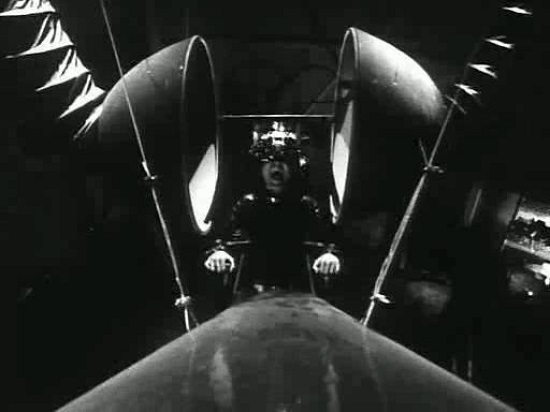
The resurgence of sound continues apace
The current cinematic resurgence of intriguing, cleverly integrated sound design was well represented at the festival, with Berberian Sound Studio showing to a large audience on the Wednesday night. But it was the following day’s screening of Noche (The Night, 2013), a film by Argentinian director Leonardo Brzezicki that provided the most compelling evidence of its crucial importance to cinema.
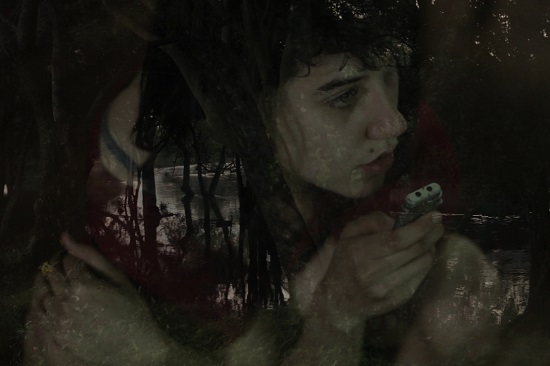
Noche is the story of a group of teenagers who come together in the countryside house of a friend, Miguel, who has recently committed suicide, in order to listen to the last of his obsessively compiled collection of field recordings. Through listening to his tapes the friends attempt to come to terms with his violent death and to reach a sense of understanding, all the while – being teenagers – squabbling, having sex and pouting around looking cool while smoking fags. Noche is stylishly shot and understatedly acted, leaving it to the soundtrack to carry the film’s emotional weight, and it works brilliantly. Miguel’s recordings dominate the cinema space, sliding across one another like waves on a beach, leaving tangles of memory and association in their wake; his voice contextualising them from beyond the grave and undercutting every image we see, so that the result is a kind of reverie, a study of the way that sound affects our memories of our surroundings and of each other. Sudden bursts of industrial techno suddenly flare up out of nowhere making it impossible to ascertain whether the music is a part of the characters’ environment or something more internalised – a fragment of remembrance of their departed friend; moments of abandon and joy are undercut by whispered voices or the sound of tape machines grinding to a halt. Of course all of this would constitute a radio play were the visuals not also up to scratch, but Brzezicki has nothing to fear here. The film is immaculately presented. One scene in particular, a long static shot of a group of dogs attacking the remains of a chicken carcass has lodged itself in my memory ever since I saw it. One of my favourite films of the festival, I can’t wait to see Noche again and as a debut it promises a bright future for its young director.
Takashi Miike could no more not make a Takashi Miike film than I could punch out a horse
I was a little trepidatious about seeing Takashi Miike’s Shield Of Straw after hearing that it was one of his more ‘commercial’ efforts. I needn’t have worried really, as it’s madder than a sack full of badgers. Taking a Wages Of Fear-like ‘Dangerous Cargo’ story structure (a group of cops have to escort a convicted murderer across the city, despite the million yen bounty on his head put there by his latest victim’s billionaire father and the subsequent attempts on his life by members of the public and – DA DA DAAAA! – the police force itself) Miike uses the set up to blast away at as many targets as possible, from police privatisation to the corrupting influence of wealth, all the while staying true to his consistent themes of honour and trying to stay true to your principles under pressure. The result is not the action film that one would imagine from the set-up, but rather a wonkily paced character study, as all the central protagonists have their faith tested by the seeming illogicality of their mission. The film’s strength depends a lot on its central performances and Nanako Matsushima and Takao Osahwa in particular do excellent jobs with the relatively spare, and at times fairly ludicrous dialogue (although how much of this is down to the translation is difficult to tell), while Miike is clearly relishing adding heart-stopping hair pin bends into the packed plot. The result is a lot of fun, although as with most Miike films, there are some head scratchingly inane twists and turns, which had the audience laughing out loud at the screening I attended. It often seems that Miike just can’t help himself with moments like this, and these sudden eruptions of illogicality have clearly become part of his arsenal. Like it or lump it, this is a Miike film through and through. And, let’s face it, even if you don’t dig it, the legendarily prolific director has probably made about four other movies in the time it’s taken to write this review. Maybe you’ll enjoy one of them more?
Smut can constitute a very fine communal experience
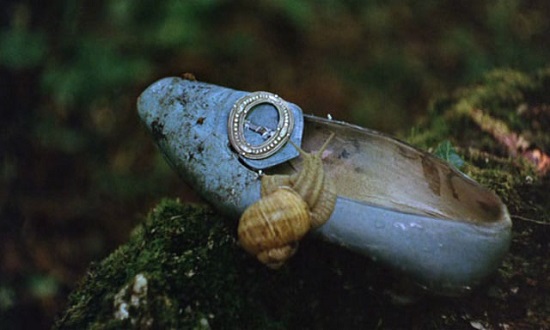
There was a fair helping of muckiness throughout the festival’s programme. Indeed, one fellow critic I talked to on the last day of the festival confided that the theme across much of what he’d seen appeared to be people masturbating in woodland areas, a comment which obviously made me wish I’d been able to take in a few more screenings. However it was a showing of Walerian Borowczyk’s surrealist classic The Beast (1975) that really cracked the bar as regards naughtiness in public. A tale of an immoral aristocrat and his attempts to marry his lummox of a son into the wealth that will secure his family seat, The Beast is high class, surrealist filth. The main structure of the film is that of a Bunuelian farce, peppered with lots of bonking and masturbation scenes, but it’s in its most celebrated (?) section, in which a woman dressed as Little Bo Peep is chased through the woods and assaulted by an actor in a ludicrously unrealistic ‘Beast’ costume that sports an equally mind-boggling erection, before turning the tables and… well… shagging her aggressor to death, that really bought the house down. On paper this sounds like the worst kind of exploitative unpleasantness, but in a packed Friday night house the effect was electric. I thought that the chap sitting next to me with his girlfriend was going to have an attack, he was laughing so hard. Indeed everyone in the cinema was practically gasping for air by the end of the film and the general atmosphere as we all filed out to leave was genuinely joyful. It’s this lightness of touch that stops The Beast from being merely offensive trash and puts it on another level all together. Something that unites all the best erotica and that our current leaders would do well to bear in mind before embarking on damn-fool crusades to stamp out potentially ‘harmful’ material. It might be filth to you, matey, but to a packed audience on a Friday night in Wroclaw it was buzzy, silly and purely, madly enjoyable. Another reason to distrust would-be censors and another reason to love the city of Wroclaw and this most excellent and illuminating of film festivals.

